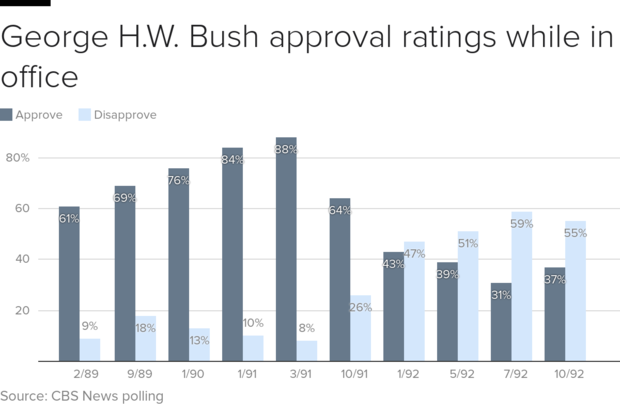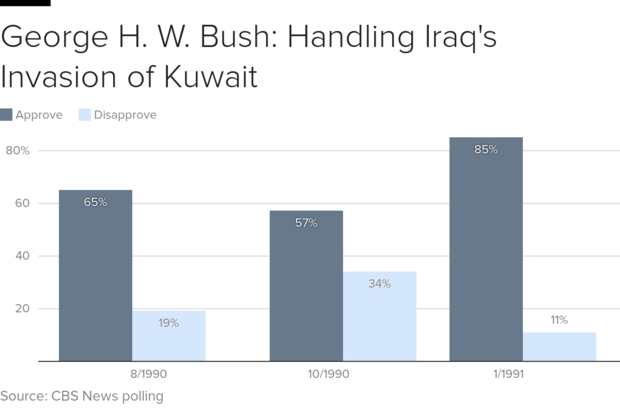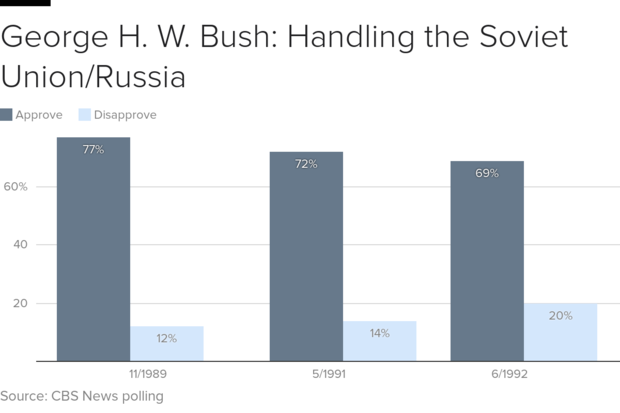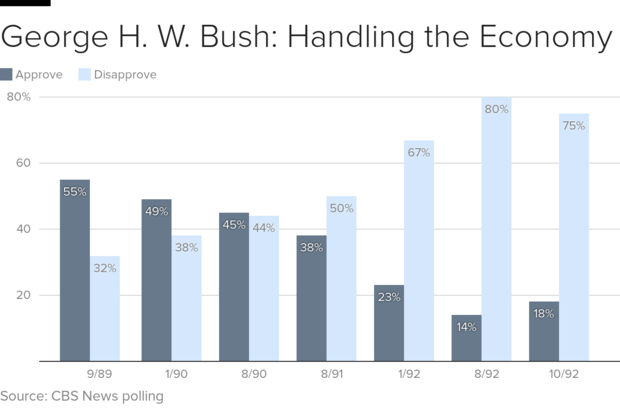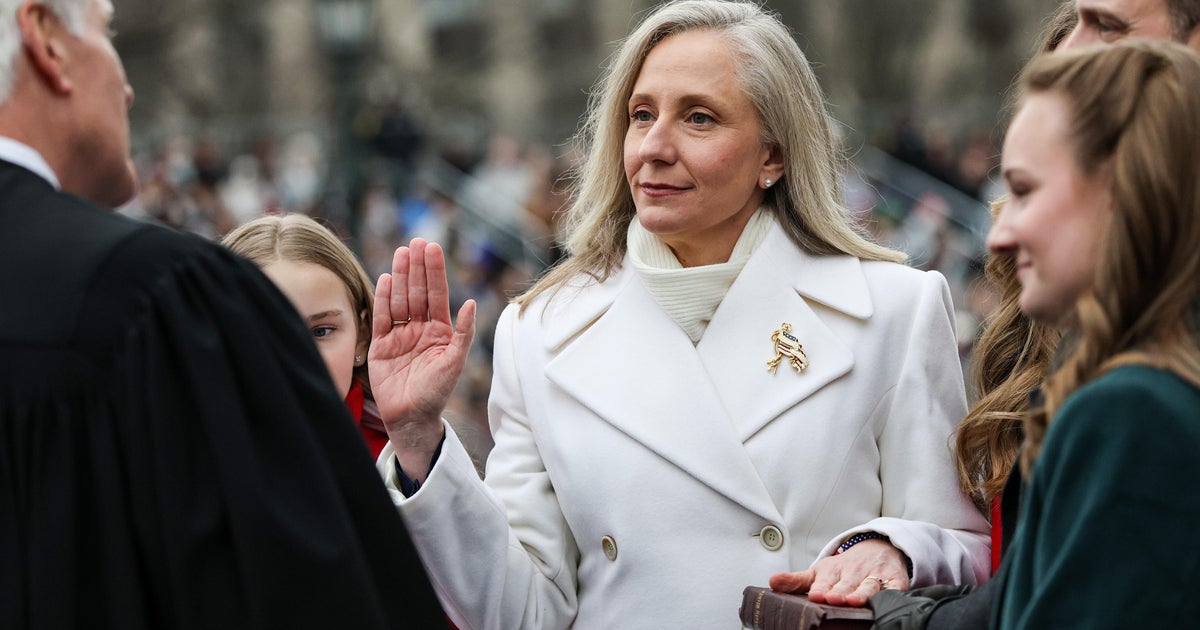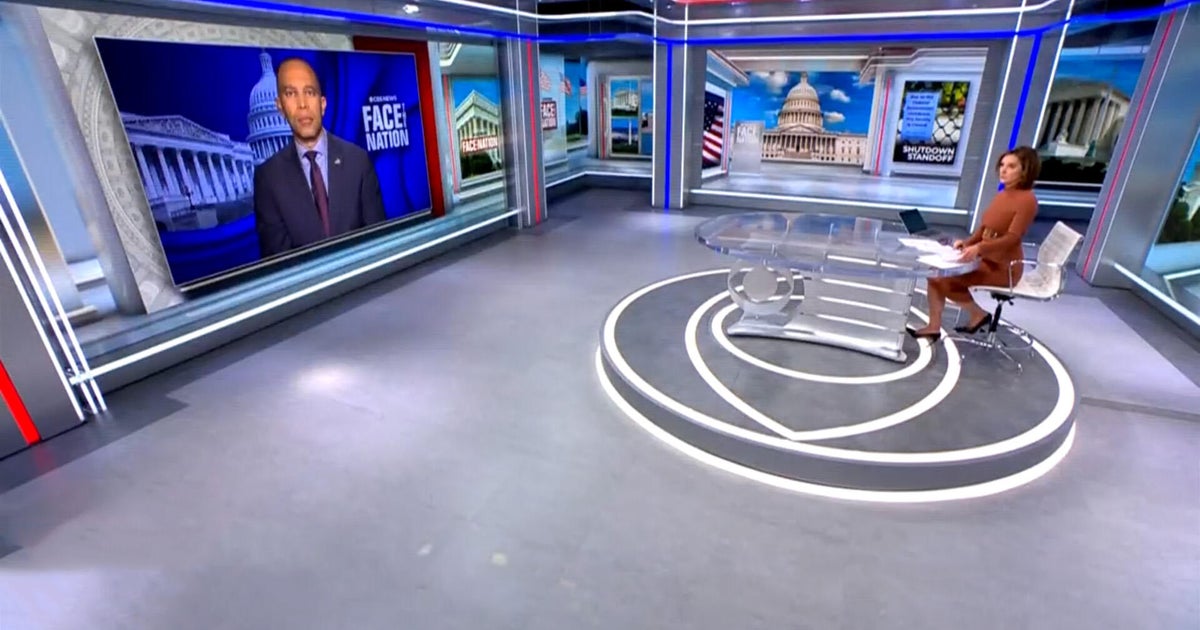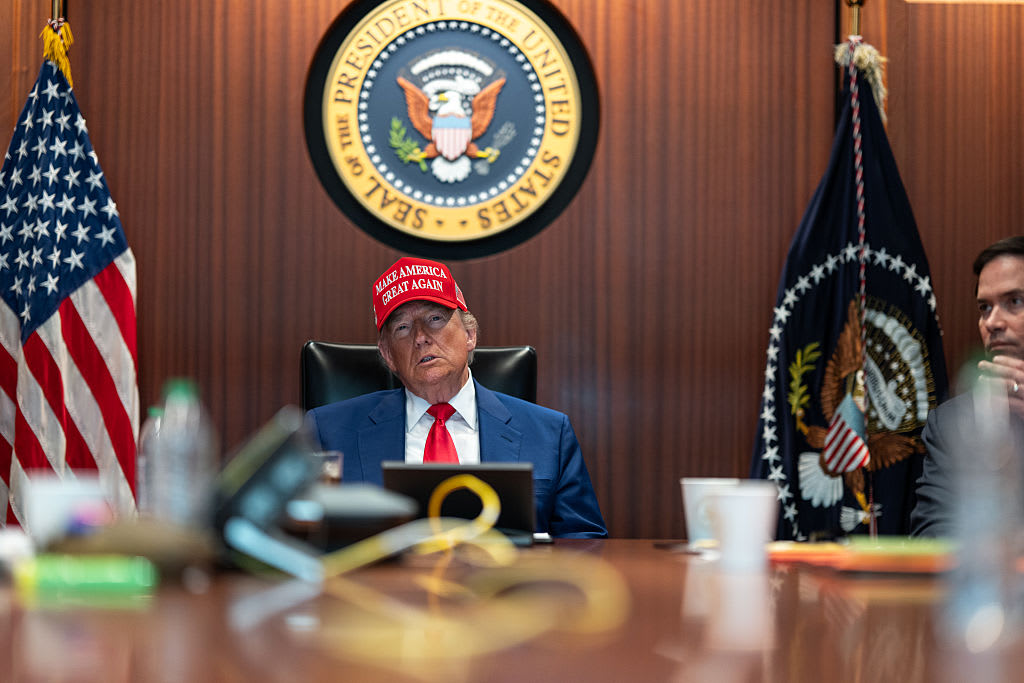George H.W. Bush: The public's view of him during his presidency
By Anthony Salvanto and Jennifer De Pinto
During his presidency, George Herbert Walker Bush received some of the highest approval ratings then recorded for a sitting president, according to CBS News polling. But in the latter part of his term, economic troubles at home took their toll on his approval ratings – and ultimately proved the undoing of his re-election bid.
Job Approval Ratings: Highs and Lows
Succeeding President Ronald Reagan in 1989, President Bush, also a Republican, started with high approval ratings that remained mostly in the 60s during his first year in office. As the Gulf War began in early 1991 his approval ratings soared. Nearly nine in 10 Americans approved of President Bush's overall job performance, including most Democrats.
By the fall of 1991, after the war had ended, those job ratings dipped, though they were still high by historical standards at 64 percent. Around the same time, though, evaluations of his handling of the economy were low -- a harbinger of further electoral problems ahead.
By January 1992, just one year after enjoying such high ratings, President Bush's job approval dropped below the 50 percent mark. In July of 1992 just 31 percent approved of the job he was doing, the low for his presidency.
The first Gulf War and foreign policy
President George H.W. Bush received high marks from the American public for his handling of the first Gulf War. In August 1990, following Iraq's invasion of Kuwait, two-thirds of Americans favored his handling of the situation. Once the U.S.-led coalition began driving Iraqi troops out of that country, more than eight in ten backed President Bush's handling of it.
The Berlin Wall came down on George H.W. Bush's watch -- an event considered by many to mark at least the symbolic, if not the official, end of Soviet domination in Eastern Europe. As many Eastern European nations turned toward democracy, 74 percent of Americans in a January 1990 CBS News Poll gave President Bush at least some credit for that (though very few gave him a lot of credit.)
Throughout his presidency, Americans gave President Bush high marks for his handling of relations with the Soviet Union and Russia.
Source: CBS News Polls
The Economy and Taxes
Back in the U.S., the economy and recession of the early 1990's dragged down President Bush's overall ratings. Most said the economy was in bad shape and President Bush's approval on handling the issue reached extremely low levels as he made his bid for re-election. While early in his term most Americans approved of his handling of the economy, by 1990, less than half did, and in the election year of 1992 less than one in five Americans approved.
One key economic issue – taxes – played an important role in George Bush's presidency. When running for President he had famously declared "Read my lips, no new taxes." However, in the fall of 1990 President Bush did sign off on a budget that reduced the federal deficit, but also contained a tax increase. As he did so, nearly two-thirds of Americans (62 percent) disapproved of raising taxes to reduce the deficit, including 55 percent of those in his own party. Only 33 percent of Americans approved.
At the same time, 54 percent of Americans doubted he had ever meant to stick to that "no new taxes" declaration when he'd made it. In February 1992, 52 percent still thought he could have avoided the tax hike if he'd really wanted to. About four in 10 accepted it as something he had to do.
The 1992 presidential election
In the spring of 1992, President Bush had the lead in a re-election battle against Democratic Arkansas Governor Bill Clinton and businessman Ross Perot. But following the Democratic Convention and Clinton's choice of Tennessee Senator Al Gore as his running mate in July, Clinton took the lead.
As the Bush campaign attempted to cast doubts on Bill Clinton's character, positive assessments of the condition of the national economy continued to decline. By October, though six in 10 voters said they doubted Bill Clinton's trustworthiness, more saw him as the candidate who would best solve the country's economic problems and bring about needed change.
Those factors mattered to voters on Election Day. According to the CBS News Exit Poll, the ability to bring about needed change was the most important candidate quality to voters, and the economy and jobs was the most important issue in their vote. Sixty-four percent of voters on Election Day said they disapproved of how President Bush was handling the economy. Bill Clinton won the 1992 presidential election.
After re-election defeat
Public evaluations of President Bush rebounded after the 1992 election. As he was about to exit office, 54 percent of Americans approved of the job George H.W. Bush did while in office. That rating was lower than Ronald Reagan's, Bill Clinton's and Barack Obama's, but higher than the ratings of Jimmy Carter and his son George W. Bush.
Twenty-five years later, most Americans feel positively about President George H. W. Bush's performance in office. A Gallup Poll conducted earlier this year found that 64 percent of Americans approve of the job he did as president, ranking him third in that poll, behind only John F. Kennedy (86 percent) and Ronald Reagan (72 percent), and similar to the retrospective ratings of Bill Clinton and Barack Obama.
